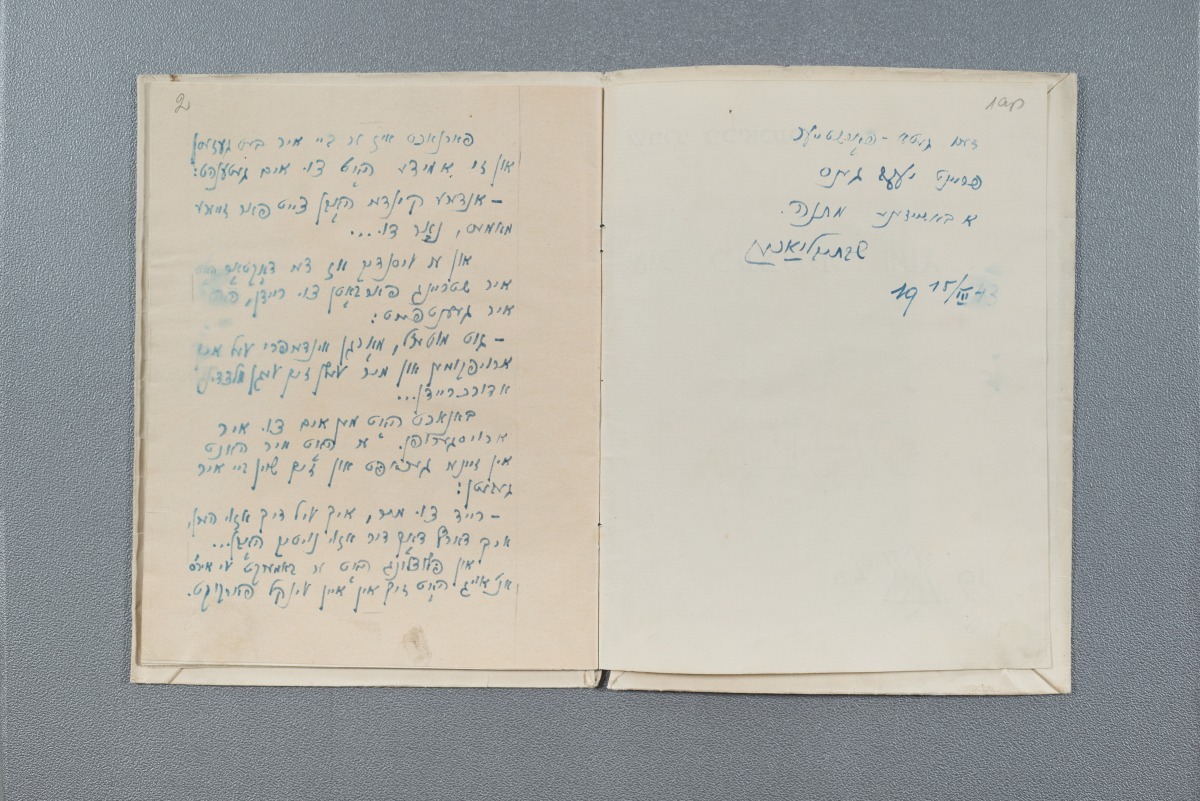STORY OF THE MONTH |
← |
Published: 2018-02-22
SEVERAL PAGES FROM THE VILNA GHETTO
The holdings of the Vilna Gaon State Jewish Museum boast over 80 manuscripts with writings from the Vilna Ghetto: lyrics, poems, reviews, screenplays and short stories.
Among them there is a poem by Shabsay Blacher (born in Vilnius in 1904; according to some other sources he was actually born in 1907) Her Last Road (Inventory No VŽM 4563) written in a copybook in blue ink. The flyleaf of the copybook bears the author’s dedication to Jacob Gentz (see illustration VŽM 4563-2).
Blacher was among the key founders and actors of the Vilna Ghetto theatre. In addition, he became board secretary of the Literary and Artistic Union and wrote a literary piece in Yiddish titled Ein un cvancik un einer (Twenty One and One) to commemorate the Jewish actors who perished before 1942.
It was not by accident that Blacher took to acting in the ghetto. As a child he received traditional education and from 1919 studied at a secular school in Warsaw with Yiddish as the language of instruction. Starting with 1921 Blacher took classes at a theatre studio and in 1924 wrote his first one-act comedy The Artists. He played in the theatre, translated texts, directed plays and worked as a prompter. Blacher graduated from a drama school and became a professional actor. He specialised in playing vivid characters. In 1940–1941 Blacher lived in Vilnius, where he worked as an actor at the comedy and review theatre Remikot, and later joined the State Jewish Theatre in Vilnius. Shabsay Blacher was killed in 1944 in the Klooga concentration camp in Estonia.
The poem Her Last Road tells about a mother whose dead body is being buried in the ghetto and one of her sons who is going through memories of the hard times in her life, including the period in the ghetto. It is not by accident that the poem ends with a minor lyrical note, including impressive personifications employed by the author: ‘And it appeared to him that / the spades / squeaked their last kadiš,/ and the wind scattered its Amen/ all over the fields…’ On the other hand, Blacher portrays the mother as a stoic character which gets revealed amidst the cruel circumstances that she faces in the ghetto: ‘In her room he found / two Jewish policemen, and she, / his mother, uttered / rather calmly: / – If you need a ransom, / why should it take the form of a young person …
Prepared and translated from Yiddish by Ilona Murauskaitė, Conservationist and Researcher of Holdings at VGSJM
Photograph by Paulius Račiūnas, 2017
© From the holdings of VGSJM
| ↑ | ← |


